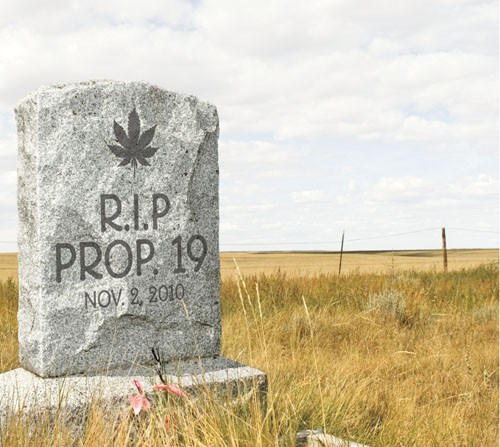
Nothing on the Nov. 2 ballot would have affected Humboldt County so profoundly as Proposition 19. Governors and senators come and go, and may, if they are talented and lucky, leave behind a few scratches on the wall. Local elected officials possess the power to regulate land use and development, but their job, apart from that, mostly consists of scraping together enough money to pay the cops and pave the roads. Proposition 19 -- marijuana legalization -- would have turned the county's economy upside-down. In the end it failed badly, with only 46 percent of the statewide electorate voting in favor. Shockingly, Prop. 19 fared no better here, in the state's unofficial marijuana capital.
Why did it lose, even as the county came out so strongly for statewide Democratic candidates? Two possible reasons: Either law-and-order Democrats decided to give the drug war another shot, or else people who make their living from illicit weed voted their pocketbooks.
In a few weeks, the county elections office will release a precinct-by-precinct breakdown of the county vote. When it does, we'll be able to see how people in each community voted on legalization, and we'll be able to get at least some sense of how strongly people involved in the Humboldt County marijuana industry voted to keep the status quo. Whatever the case, the failure of the bill can't be laid at the feet of Emerald Triangle growers and their allies -- as Robert Gammon writes, proponents of Prop. 19 failed to convince many of California's traditionally liberal communities that legalization was in their interest.
Southern Humboldt writer and activist Charley Custer -- a Prop. 19 supporter -- believes that the initiative's failure has nevertheless bought us some time. Regardless of last week's vote, marijuana is becoming ever more mainstream. The artificial scarcity of the product once fueled our economy, but the gray market established in the wake of 1996's Proposition 215 is becoming ever paler. Prices are falling. We have to start talking about marijuana like adults, at all levels of government, if we're to adapt to this new reality.
Comments (5)
Showing 1-5 of 5